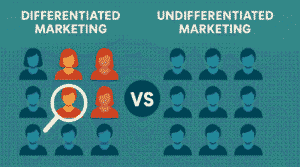Managing projects can be a daunting task, especially as the complexity and scale of projects grow. That’s where project management software comes into play. It’s an essential tool that organizations rely on to streamline workflows, track progress, and ensure that teams stay aligned and productive.
In this comprehensive guide, we’ll walk you through what project management software is, its core functionalities, the top features to look for, and how to choose the best one for your business needs.
Why Project Management Software is Essential
In a busy business environment, managing projects manually or with outdated methods simply isn’t feasible anymore. Project management software was designed to solve this problem by helping you plan, manage, and monitor projects from start to finish. The evolution of these tools has dramatically improved the way teams collaborate, communicate, and execute their tasks.
Whether you’re a project manager overseeing multiple teams or a small startup trying to stay organized, project management software brings everything together under one roof. From assigning tasks to tracking deadlines, managing resources, and even forecasting future trends, project management tools are invaluable. They enable businesses to deliver projects on time, within budget, and according to the highest standards of quality.
What is Project Management Software?
At its core, project management software (PMS) is a digital platform that helps companies manage and organize their business projects. It streamlines processes by automating routine tasks, tracking time, identifying risks, and providing the necessary tools to collaborate effectively.
The idea behind using project management software is to reduce human error, increase productivity, and ensure everyone involved in a project stays aligned. Instead of using separate systems or manual methods to monitor progress, PMS provides a centralized platform where everything is in one place. This not only saves time but ensures transparency in operations.
The ability to access project data from anywhere in the world, at any time, further enhances the flexibility of PMS. With cloud-based solutions, team members can check progress, upload files, and collaborate no matter where they’re located. Moreover, these tools offer data security and storage options, ensuring that valuable project information is protected and easily accessible.
But it doesn’t stop there—project management software plays a vital role in driving efficiency. By optimizing project workflows and adjusting strategies based on real-time data, PMS helps businesses anticipate and mitigate risks, forecast future trends, and stay ahead of the competition.
Functions of Project Management Software
While each project management tool might offer a unique set of features, they generally share core functionalities that are designed to make project management more efficient, collaborative, and transparent. Let’s break down some of the essential features of PMS:
1. Cloud-Based Solutions
A notable trend in the project management space is the widespread adoption of cloud-based software. Cloud computing has made it possible for project managers and team members to access project data from anywhere, at any time, as long as they have an internet connection. This significantly enhances flexibility and convenience, especially in the era of remote work and distributed teams.
One of the most visible benefits of cloud-based project management software is the seamless sharing of files, documents, and updates across all users. This centralized system eliminates the confusion of tracking multiple versions of documents and helps everyone stay on the same page.
2. Combine Workflow Tools in One Place
Many businesses use several tools to manage different aspects of their projects—one tool for task management, another for communication, a third for file-sharing, and so on. But juggling multiple tools can lead to inefficiency and miscommunication. Project management software simplifies this by combining all necessary functions in one platform.
By consolidating everything into one interface, team members no longer have to flip between different apps to perform basic tasks. This not only saves time but also ensures that everyone is using the same system, reducing the chances of errors and misalignment.
3. Collaboration for Teams
Effective collaboration is the cornerstone of successful project management. When managing large projects, keeping everyone on the same page is crucial. Project management software facilitates cross-functional collaboration, making it easy for teams to communicate, share information, and track progress together.
With tools for file-sharing, discussion threads, and real-time updates, team members can stay connected regardless of where they are physically located. This is particularly important for remote teams or teams working across different time zones. Having all information in one place ensures no one is left out of the loop, and everything is documented for future reference.
4. Keep Teams Accountable
In any project, accountability is key. If your team members don’t know what they’re responsible for, or if they miss deadlines, the entire project can suffer. Project management software helps solve this by clearly defining roles, responsibilities, and deadlines.
With task assignments, deadline tracking, and progress monitoring, everyone knows what’s expected of them. Project managers can easily check who’s responsible for what and ensure that tasks are being completed on time. This also helps in identifying any bottlenecks early on, allowing for quick resolution.
5. Easy Documentation
Documentation is a crucial part of any project, from project plans to reports, meeting notes, and task-specific files. Good documentation helps ensure that everyone involved in the project has the information they need, and it provides a record for future reference.
Project management software often integrates with tools like Google Drive, Dropbox, or its own internal storage to provide seamless document management. This allows teams to store files in a centralized location, collaborate on documents in real-time, and ensure that everything is properly archived for easy access.
6. Making Meetings More Meaningful
Meetings can often become unproductive if the objectives aren’t clear. With project management software, project managers can schedule meetings, set agendas, and track discussion points. This ensures that everyone is on the same page and that meetings remain focused on the key issues.
Software tools often include features like agenda creation, task delegation post-meeting, and real-time note-taking, which enhance the overall productivity of meetings. As a result, team members leave meetings with a clear understanding of their responsibilities, and everyone is aligned on next steps.
Top Features to Look for in Project Management Software
While there are many project management tools available, not all are created equal. To get the most out of your PMS, it’s essential to choose one that offers the features you need. Here’s a breakdown of seven must-have features:
1. Kanban Boards
A Kanban board is a powerful visual tool used to manage workflows. It’s perfect for tracking tasks, milestones, and dependencies in a project. Kanban boards typically use a card system to represent tasks, and the cards are moved across columns to show their progress.
This tool not only provides visibility into individual tasks but also shows how tasks fit into the larger picture of the project. It’s a simple yet effective way to organize and prioritize tasks and can be particularly helpful for teams working on multiple projects simultaneously.
2. Task Management
Every project is made up of tasks that need to be completed in a specific order or simultaneously. Task management tools within PMS allow project managers to break down projects into smaller, manageable tasks, assign them to the right team members, and set deadlines.
Task management tools are essential for tracking progress and ensuring that nothing falls through the cracks. These tools should support dependencies, priorities, and notifications to help keep everything on track.
3. To-Do Lists
Despite being a basic feature, to-do lists are invaluable for staying organized. Good project management software will allow you to create central to-do lists that are visible to all team members. This ensures that everyone knows what needs to be done and can easily track their progress.
To-do lists should be customizable and easy to update, allowing team members to check off completed tasks and add new ones as necessary.
4. Time Tracker
Time tracking is an essential feature for both managing the team’s productivity and ensuring accurate billing. By tracking how much time is spent on each task, project managers can gain insights into the project’s overall efficiency.
Time tracking also helps teams plan future projects by providing historical data on how long certain tasks take to complete. This feature is especially useful for businesses that bill clients based on time or need to track resource utilization.
5. Collaboration Tools
Whether your team is small or large, collaboration is key to project success. Your project management software should have features that facilitate real-time communication, document sharing, and feedback loops.
Collaboration tools like chat functions, file-sharing, and comment sections allow team members to communicate efficiently and work together on tasks, regardless of their physical location. It is the primary reason why businesses nowadays use collaborative tools for their teams.
6. Integration with Other Tools
In most businesses, project management is just one part of a larger system of tools. Your PMS should be able to integrate with other essential business software, such as CRM systems, accounting tools, and email platforms.
Integration ensures that all systems are working together seamlessly, reducing the risk of errors and eliminating the need for manual data entry. It also helps provide a holistic view of the project’s status by pulling in data from multiple sources.
7. Detailed Reporting
Reporting features are vital for gaining insights into a project’s status. Detailed reports provide a comprehensive view of task completion, resource utilization, costs, and more. The ability to generate customized reports based on different criteria (e.g., team performance, budget status) is essential for making informed decisions.
Project management software should offer the ability to generate both high-level summaries and detailed reports, ensuring that managers can easily track progress and address any issues that arise.
Benefits of Project Management Software
Project management software brings numerous benefits to teams and organizations, making it an essential tool for modern project management. From streamlining workflows to enhancing communication, here’s how project management software can help:
Efficient Scheduling of Project Time
One of the most significant advantages of project management software is its ability to help with efficient scheduling. By providing tools for task management, timeline visualization, and resource allocation, it ensures that all aspects of the project are properly scheduled. Software like Gantt charts and calendar views help project managers map out milestones and deadlines, ensuring that no tasks are overlooked. With a clear, organized schedule, project teams can allocate their time effectively, ensuring that all deadlines are met.
Automatic Rescheduling of Tasks
Project timelines rarely go as planned, but that’s where project management software shines. If a deadline is missed or tasks are delayed, the software automatically reschedules tasks, ensuring that the project stays on track. Whether it’s moving tasks to later dates or reassigning resources, the software provides dynamic adjustments without requiring a complete manual overhaul of the project plan. This keeps the project moving forward and minimizes disruptions, ensuring a smooth workflow even when things don’t go according to plan.
Project Planning and Scheduling
Beyond automatic adjustments, project management software simplifies project planning and scheduling. It allows project managers to set clear goals, create detailed project roadmaps, and break down tasks into manageable chunks. Visual tools like Gantt charts and Kanban boards help to illustrate the entire project timeline, so everyone involved knows their responsibilities and deadlines. These features help reduce confusion and ensure that everyone is on the same page when it comes to deliverables and expectations.
Better Collaboration
Collaboration is crucial for any project’s success. Project management software centralizes communication, making it easier for teams to share updates, documents, and feedback in real-time. It allows everyone on the team to stay in sync, even if they’re working remotely or across different time zones. With everything stored in one place, you no longer need to rely on disjointed tools or email chains, leading to faster decision-making and problem-solving.
Remote Working Capabilities
In today’s world, many teams work remotely, and project management software provides the tools to ensure effective collaboration, no matter where the team members are located. Cloud-based solutions allow easy access to project details, and features like file sharing, real-time updates, and task management ensure teams can stay connected and productive, even when working from different parts of the globe.
Focus on Your Goals
Project management software helps keep your team focused on the bigger picture by clearly defining goals and priorities. With a centralized platform to track progress, managers can easily ensure that everyone is aligned with the project’s objectives. Automatic reminders and task tracking help team members stay on task, minimizing distractions and ensuring that the most important goals are always front and center. With these tools, project managers can focus more on strategic decisions and less on micromanaging daily activities, driving better project outcomes.
Increased Productivity
Project management software enhances productivity by streamlining repetitive tasks, reducing manual tracking, and offering time-saving features like task automation and progress monitoring. With clearer task assignments and deadlines, team members can focus on high-priority work without wasting time on administrative duties, ultimately improving project completion rates and overall team efficiency.
Choosing the Right Project Management Software
The software you choose will largely depend on the size of your team, your business goals, and the complexity of your projects. Larger organizations may require more advanced features, while small startups may benefit from simpler tools.
Here are a few things to consider when choosing a project management tool:
- Team Size: Larger teams will need more robust tools for collaboration and communication.
- Project Complexity: The more complex your project, the more features you’ll need, such as resource management and reporting tools.
- Ease of Use: Look for tools that are intuitive and easy for your team to adopt.
- Customization: Choose a tool that can be tailored to fit your unique workflow.
- Budget: Consider your budget, as pricing varies widely between tools.
Conclusion
Project management software is more than just a tool—it’s an essential part of modern business operations. By streamlining workflows, improving collaboration, and providing essential insights into project progress, PMS helps businesses stay organized, on track, and ahead of the competition.
Whether you’re managing a small project or a large-scale enterprise initiative, the right project management software can make all the difference in ensuring your projects are delivered on time, within budget, and to the satisfaction of your stakeholders.
With so many options available, it’s important to carefully evaluate your business needs and choose the software that aligns with your goals. The right choice will not only help you manage your projects more effectively but also foster better communication and collaboration within your team, ensuring long-term success.






1 thought on “What is Project Management Software? A Comprehensive Guide”
Your point of view caught my eye and was very interesting. Thanks. I have a question for you about project management software.